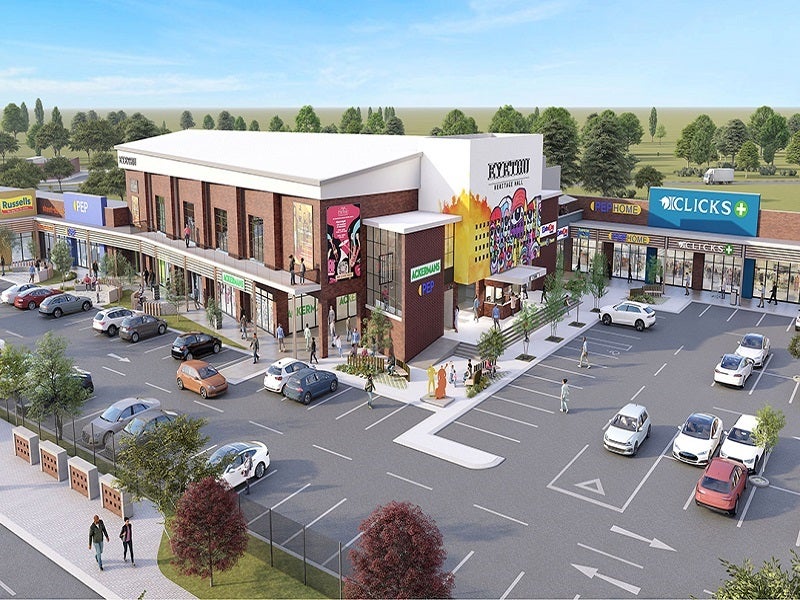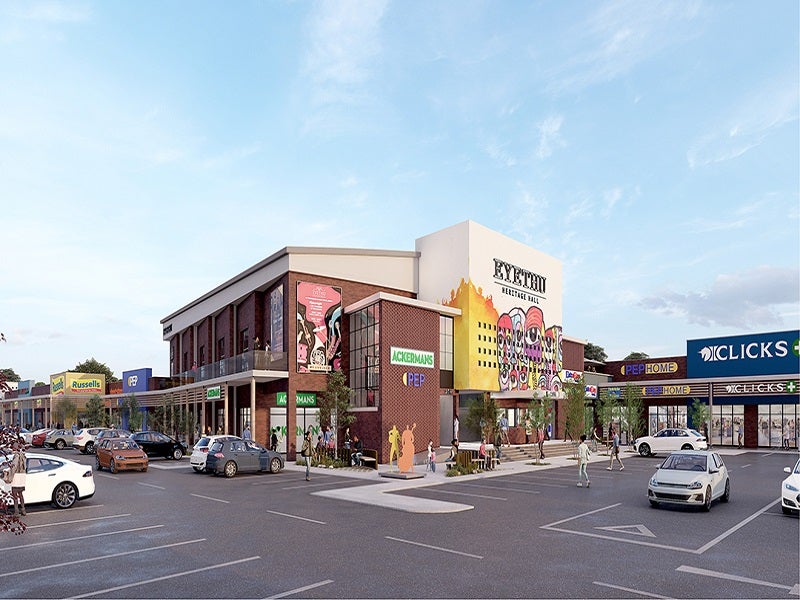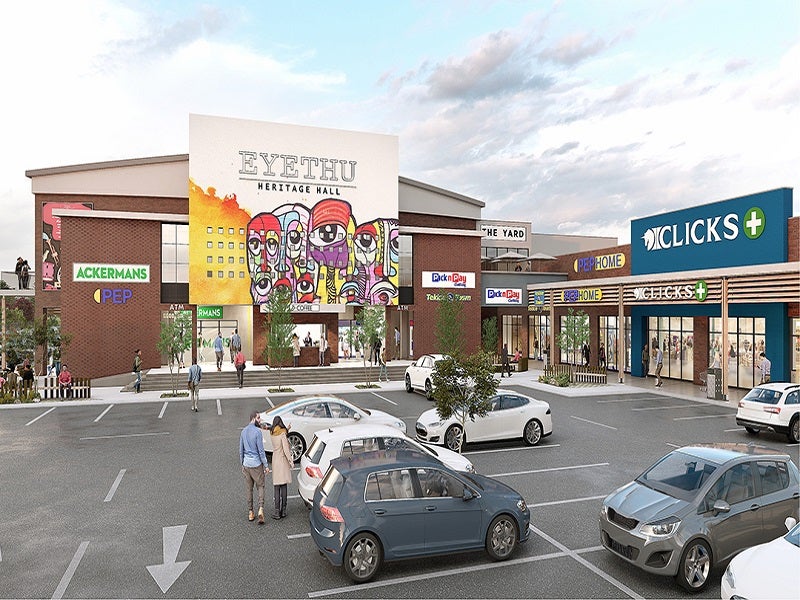The Eyethu shopping centre, a premium convenience retail space, is located in Mofolo Central in the Soweto township, South Africa.
The project was developed by the family of the late Soweto business tycoon Ephraim Tshabalala along with their partners, including Abland Property Developers, a commercial, industrial, and retail property developer based in South Africa.
The project involved restoring and rejuvenating the historic Eyethu Theatre, which is located on the project site.
The new convenience retail centre encourages a new generation of performing arts and culture within the Soweto community.
The shopping centre was opened in November 2023.
Eyethu shopping centre location and details
The Eyethu shopping centre is located in the heart of Soweto, Gauteng. The site includes the old filling station, Eyethu Theatre, and the existing Eyethu lifestyle centre.
Established in 2013, the Eyethu Lifestyle Centre was founded by Mandla Tshabalala. It was a premium art and entertainment centre and a cultural hub for the Soweto community.
The entrance to the mall is located on Machaba Drive.
Retail and other offerings at Eyethu shopping centre
The shopping complex has approximately 10,000m² (1,076,39ft²) of retail space. It is anchored by a 2,700m² Shoprite store. The mall also features national fashion retailers and food courts.
Tenants include PEP store, Clicks Pharmacy, OBC Chicken, Ackermans, Tekkie Town, Footgear, Bradlows, Westpack, Pedros Chicken, Debonairs, and Chicken Liken Fly-Thru.
Amenities at Eyethu shopping centre
The south end wing of the shopping centre includes a drive-through fast food outlet, Heritage Hall, and a rooftop restaurant. The Heritage Hall showcases the preserved artworks from the Eyethu Theatre.
The shopping complex also houses the new rooftop Eyethu lifestyle centre, an incubation hub for small businesses, a hawkers’ market, a taxi drop-off zone, and parking spaces.
The taxi drop-off point, mini-market, and pedestrian access are located near the entrance on Machaba Drive.
The north wing features a strip food court with outdoor seating and semi-shaded pathways.
Contractors involved
The project developers engaged many local suppliers, including dbm Architects, which handled architectural responsibilities.
Matla Quantity Surveyors, a quantity surveyor company, received a contract to provide quantity surveying services.
Ingplan Consulting Engineers, an engineering consultancy company, was contracted to provide mechanical engineering services while L&S Consulting, an engineering consultant, was chosen as the structural engineer.
Cairnmead Industrial Consultants, a health and safety consulting service company, played a crucial role in overseeing the construction site’s safety measures and managing the project, achieving zero fatalities.
Other contractors include SA Demolishers, a demolition company; and MNS Consulting Engineers, an electrical and electronics engineering consulting company.
Eyethu Theatre background
The Eyethu Theatre was originally built by Ephraim Tshabalala in 1969. It was one of the first Black-owned movie theatres in South Africa.
The Eyethu Cinema was the premier entertainment venue for the Soweto community in the 1970s and 1980s and could accommodate more than 1,000 people.
The theatre, which was closed in the 1990s, has since been recognised as a significant heritage, cultural, and social site.
Opposition to the demolition of the historic theatre
Reports of the impending demolition of the historic theatre, ahead of the start of construction for the shopping centre, led to protests on social media.
The Gauteng Department of Sports, Arts, Culture and Recreation responded to the public uproar and issued a clarification in October 2021, stating that the demolition plan would not be approved without adequate consultation and engagement with the public and relevant stakeholders.
The Provincial Heritage Resources Authority of Gauteng reviewed the heritage impact assessment report and the demolition plan. It then recommended that the shopping centre development plan should incorporate the existing structure and that parts of the Eyethu Cinema should be identified for preservation rather than being demolished.
The project developers retained the steps leading to the main entrance and its facade, as well as the roof and the first-floor facade on the east side.
The existing roof is preserved by incorporating a suspended floor slab instead of an open-air type, to accommodate the multi-functional space.





